The Royal Air Force has deployed its new RC-135 Rivet Joint aircraft over Iraq the Defence Secretary has announced.
The RC-135 Rivet Joint intelligence gathering aircraft has carried out several sorties over northern Iraq, to assist the Tornado aircraft already deployed and helping to pinpoint the locations of displaced people and Islamic State (IS) fighters.
The RC-135 Rivet Joint is the RAF’s primary airborne signals intelligence platform. In simple terms, the aircraft can detect, identify and geolocate signals throughout the electromagnetic spectrum and forward it on to a variety of platforms.

The information and intelligence generated by the RC-135 is being forwarded on to the Iraqi government, Kurdish fighters and US forces in the region to assist in combating Islamic State.
The United Kingdom purchased three aircraft as part of the Airseeker project at a cost of £634m. The aircraft have entered service ahead of schedule with 51 Squadron. They are expected to remain in service until 2045.
Speaking at RAF Akrotiri, Defence Secretary Michael Fallon said:
“We will continue the humanitarian mission here and we will continue to make sure we will do everything we can to assist with the refugee problem which is wider than the Sinjar mountains.
I can confirm today we have deployed Rivet Joint, our very latest surveillance aircraft, the successor to Nimrod, to give us a much better picture, more intelligence and analysis of what is happening on the ground which will help the Iraqi government, the Kurdish forces and the Americans.”
The United Kingdom, as mentioned above, has also deployed Tornado GR4 strike aircraft to Iraq to provide vital surveillance capabilities.
The Tornado jets are being sent to provide intelligence on areas where military aid flights are dropping supplies to thousands trapped without water or food. This comes as a British Hercules had to abort two attempts to drop aid for Yazidi refugees amid fears that the drops could have hit people on the ground.


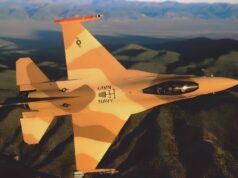




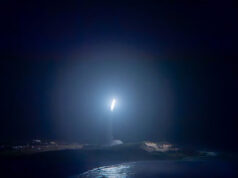
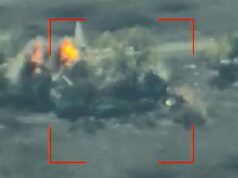
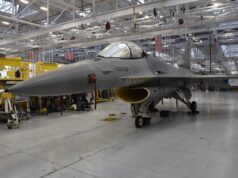
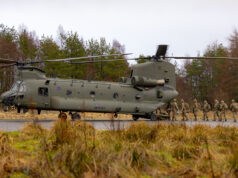


Impressive plane, ghastly name…